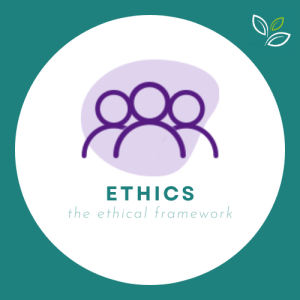Could I become a counsellor?
Have you ever wondered about becoming a counsellor? Maybe you’ve had counselling, or know someone who has, and you’d like to look into it. Perhaps someone has told you, "You’d make a good counsellor!" If you are thinking about it, read on to understand the basics.
In this blog we will look at what kind of people become counsellors. We cover what will be expected of you and what you might get out of it, plus the first steps to take along the journey.
Feeling curious

If you have a caring or sensitive nature, you feel that relationships with others are important, or just want to understand people better, you might be curious about a career in counselling. Perhaps you have had issues with your own mental health and have wondered about what makes you and others tick? Or maybe you have had counselling yourself and have become inspired to want to help others, in the same way that you were helped.
The reasons why people start on the journey to train as a counsellor are varied. Everyone has different reasons for being curious. And everyone exploring counselling learns something, about themselves and others.
At Redlands we believe that everyone can benefit from learning counselling skills. You don’t have to go on to become a counsellor, you can stop at any stage. You’ll find the skills you have learnt will help with almost every interaction.
Can anyone be a counsellor?
A lot of places offer counselling training in the UK and not all of them are reputable. A training centre that is registered with an awarding body will have rules about which applicants they can accept.
To start with:
- You must be over 18. Younger people will not have the emotional maturity to deal with some of the topics and situations that may be covered.
- You must have a level of literacy and numeracy that is sufficient for the programme concerned.
- You must have no unspent criminal convictions.
- You must be prepared to attend regular classes, online or in the classroom. The certified training is wide-ranging and part-time study at the first level extends over the course of 10 months.
- Not everyone will have the emotional resilience, commitment or patience to complete the training all the way through to the end. Even so, most people find the training very rewarding. Learning about human relationships is fascinating.
What will be expected of me?
There are no formal qualifications are required to become a counsellor, but our awarding body (CPCAB*) has issued the following guidance for applicants at entry level.
The criteria that are important in selecting applicants are:
- Be able to cope with the course content.
- Possess the ability to translate intra-personal experience into language.
- Be able to benefit from self-development.
- Be motivated towards developing as a helper.
- Possess emotional stability.
- Be aware of the time resources required to meet the demands of the course.
- Have awareness of difference and diversity.
In addition, our in-house application process involves completion of a questionnaire and a short interview.
What will I gain?
Learning counselling skills leads you to develop tolerance and understanding of others, as you start to change the way you approach communication. You will start to learn more about yourself as well, as you get the chance to give and receive feedback. This can be difficult sometimes! Ethics are a core part of counselling training, and a good training provider will ensure that their students are properly supported to work to professional standards and to treat others with respect at all times.

How do I know if it's right for me?
Firstly, The Counselling & Psychotherapy Central Awarding Body (CPCAB), which is the main awarding body in the UK for counselling and psychotherapy, has produced a useful video about starting counselling training with guidance on the process. Click here to watch it.
Secondly, you could sign up for one of our Free Taster session. This last for 2.5 hours and gives you the opportunity to ask any questions you may have, in a live session with one of our tutors. The taster also allows you to get an idea of what counselling training is going to be like.
What exactly will I learn?
CPCAB states that Level 2 (the first level of formal training) is suitable for:
- Those starting the first level of training as a professional counsellor.
- Those who want to learn counselling skills in other professional or helping roles.
- Those who want to improve their professional and personal relationships as part of personal development.
The topics that we cover include: active listening, boundaries, empathy, self-awareness, giving and receiving feedback and the importance of ethics. All of these skills can help with personal development in relationships at home and in the workplace.
Before you make the decision, you can make sure counselling training is for you by trying a Taster Session.
First step – the Taster Session
Many counselling training centres will offer some sort of short first lesson but often these are recorded and consist of PowerPoint slides. Whilst you might learn about course content you may not experience the learning atmosphere, nor meet with any professional tutors.
At Redlands we are proud of our free online Taster Sessions. These are run via Zoom, and you can book yourself on just by providing your name and email address (so that we can send you confirmation). We usually run the Tasters once or twice a month, in the morning or the evening, to suit busy schedules. You can experience a short lesson as well as learn a few listening skills. The course is live, and with a tutor who can answer any questions you may have. It’s a friendly, fun experience that lasts around 2 hours. Find out more here: https://redlandscounselling.co.uk/free-taster-course/
Afterwards, you will have a much clearer idea if counselling training is for you. You can also try the Learn to Listen course, which is the first part of formal training.
Learn to Listen
The Learn to Listen course is a one-day workshop, which is an ideal way to experience the start of our counselling training. You will spend time learning listening skills and practising them on your classmates, in a fun atmosphere and led by one of our very experienced tutors. There is a small fee payable for this class which can be reclaimed against the cost of further training with us. These courses only run at certain times of the year.
What next?
Once you have attended a Taster Session or a Learn to Listen, or if you know that you would like to start on the journey towards qualification, you begin with the CPCAB Level 2 Counselling Skills course. This course last about 4 months and at Redlands we have 2 options. You can learn online in the evenings or, if you are attending an in-person course, during one day a week. The online courses have live classroom learning on a set evening each week, via Zoom, and so they include the same practical and experiential role-play work with your peers, as the in-person course does.
The Level 2 Counselling Skills course teaches helpful listening skills for those who work in health and social care, teaching and learning, support and project work and other helping roles.
Many other centres offer Level 2 Counselling Skills Training but be sure that your centre is registered with a professional body! CPCAB has a handy centre finder: https://www.cpcab.co.uk/centre-finder
You can explore our Level 2 course in more depth here: https://redlandscounselling.co.uk/course/certificate-in-counselling-skills/
Conclusion
In conclusion we think that you should give it a go! You can do a short course and see how you feel. Counselling training itself can feel daunting at first, because it is unlike any other academic study. But the experience is exciting and should lead to personal growth and improved communication skills.
These skills help in the workplace, at home and with all kinds of relationships. We find that the majority of people who start this training don’t want to stop.
Further Reading
To read more about the entire training process to qualify as a counsellor read our blog “Starting training”
Careers guidance from BACP: https://www.bacp.co.uk/careers/careers-in-counselling/training/
This is a handy guide from UCAS on the topic : https://www.ucas.com/careers-advice/how-to-become/counsellor
